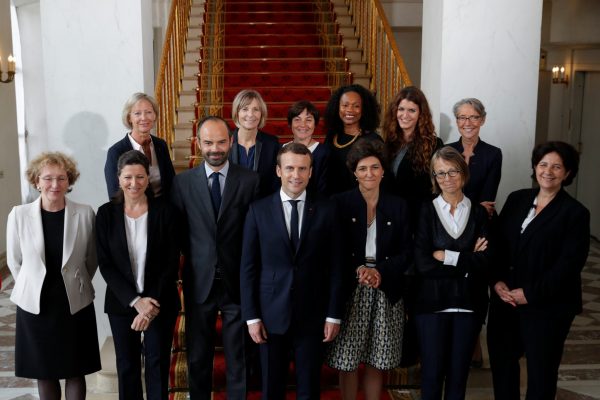New Caledonia is due to hold a referendum on self-determination, including an option of independence, next year. The outcome of this vote will be watched closely in Wallis and Futuna, a smaller territory which relies on heavy out-migration to New Caledonia for remittances and to curb over-population. In French Polynesia, pro-independence activists are also watching the situation in New Caledonia, while a renewed push for greater autonomy in the territory gains strength.
In the French Pacific, presidential elections typically have low turnouts and the results tend to say more about local politics than national politics.
In French Polynesia, abstention was encouraged by former president Oscar Temaru (after his own bid to run for president, to draw attention to the pro-independence cause, failed) as well as by factions within the pro-independence movement in New Caledonia.
Following the first round of voting, Temaru hailed the record low turnout of 39 per cent in French Polynesia as evidence of support for his party. Meanwhile, the high vote shares of François Fillon (35 per cent) and Le Pen (32.5 per cent) were seen as proxies for support for the local political figures who had endorsed them, current President Edouard Fritch and ex-president Gaston Flosse respectively. For the second round, Flosse maintained his support for Le Pen and Fritch endorsed Macron.
In New Caledonia too, most eligible voters failed to show up to the polls in the first round. In the Southern province, turnout was around 60 per cent and Le Pen and Fillon did well. Turnout was much lower in the predominantly indigenous Northern (31 per cent) and Loyalty Islands (12 per cent) provinces.
Some pro-independence groups advocated a boycott of the vote, continuing the practice of non-engagement with French presidential politics. An exception was Palika, which endorsed the Socialist Party candidate Benoït Hamon, who topped the polls with around a third of the vote in both Northern and Loyalty Islands provinces. Ahead of the second round, Palika endorsed Macron, as did various high-profile political figures connected to the Calédonie Ensemble party in the anti-independence camp.
Both pro-independence and pro-France groups in New Caledonia that called for voters to support Macron expressed concern that Le Pen — although publicly committed to respecting progress towards a referendum as per the Noumea Accord — had previously been strongly against the Accord.
Macron — who has never visited the French Pacific — fared rather poorly in the Pacific territories in the first round, winning only in Wallis and Futuna and placing a distant third in New Caledonia and French Polynesia. But in the second round he won all three territories over Le Pen.
Again, his best result was in Wallis and Futuna where he won 79 per cent of the vote. In New Caledonia, turnout increased from the first round only marginally in the Southern province but significantly in both Northern and Loyalty Islands provinces, where support for Macron in the was enough to offset a narrow Le Pen victory in the south. And in French Polynesia Macron won only one commune out of 48 in the first round but won 37 in round two.
So what does Macron’s victory mean for the French Pacific?
The crucial upcoming event is next year’s referendum in New Caledonia, which in many ways will set the scene for France’s continued engagement in the region.
The absence of the two major parties in the runoff election did give rise to some uncertainty over the territory’s political future. Le Pen’s motives were viewed with suspicion in the territory, and Macron’s position seen as unclear.
During the campaign, Macron did tackle the ghosts of France’s colonial past. In Algeria in February, he came out strongly in favour of an official apology and called colonialism a crime against humanity. These remarks were obviously of interest to pro-independence activists (and of concern to their pro-France counterparts) in the French Pacific.
But in the week prior to the run-off election he clarified his position on New Caledonia’s political future — that while it was up to the people of New Caledonia to decide, he would like to see it remain with France (a position very similar to his former boss and predecessor François Hollande). In this respect we can expect relative continuity from Paris.
Still, his strong statements in the same interview on what the referendum question should be — an issue of much contestation in New Caledonia — would have been troubling to people in the pro-independence camp, many of whom nevertheless voted for him (or, perhaps, against Le Pen) in the election.
This election has upset the balance of traditional two-party politics in France. Its territories in the Pacific will be watching closely to see if this has repercussions for their political futures.
Kerryn Baker is a research fellow at the State, Society and Governance in Melanesia Program, Coral Bell School of Asia Pacific Affairs, The Australian National University.

